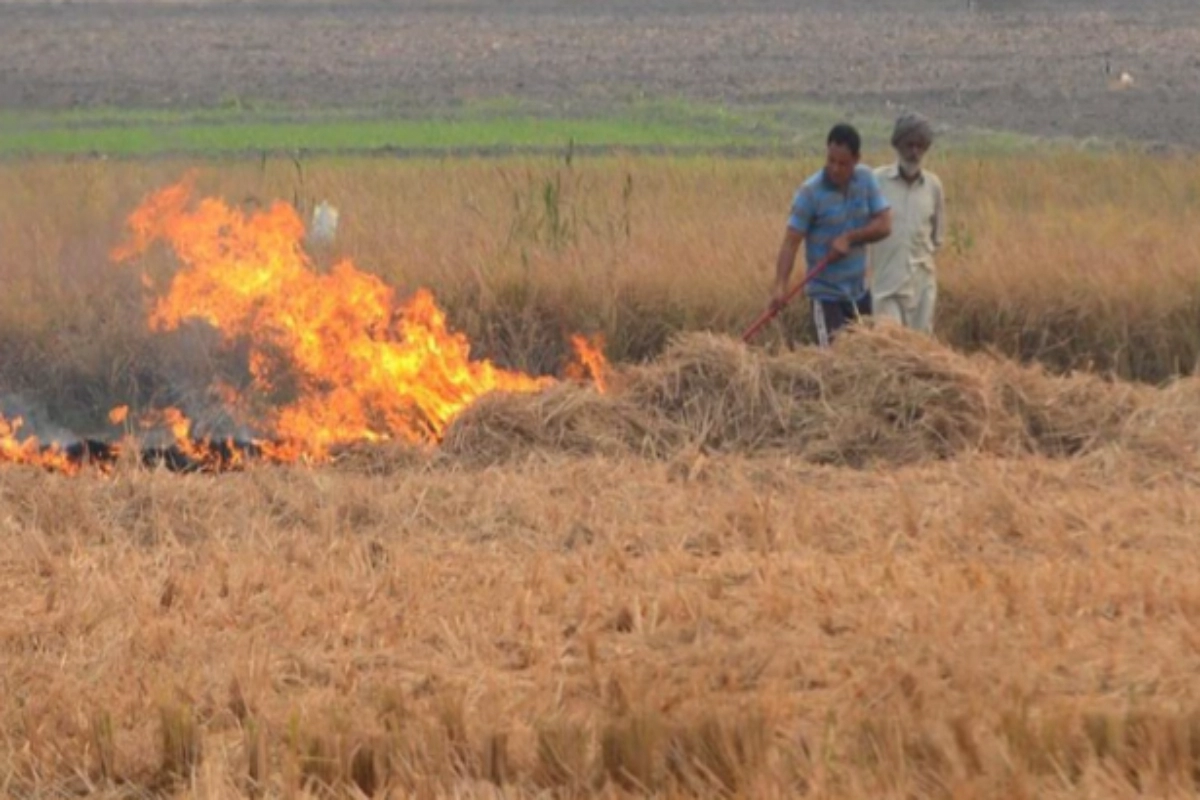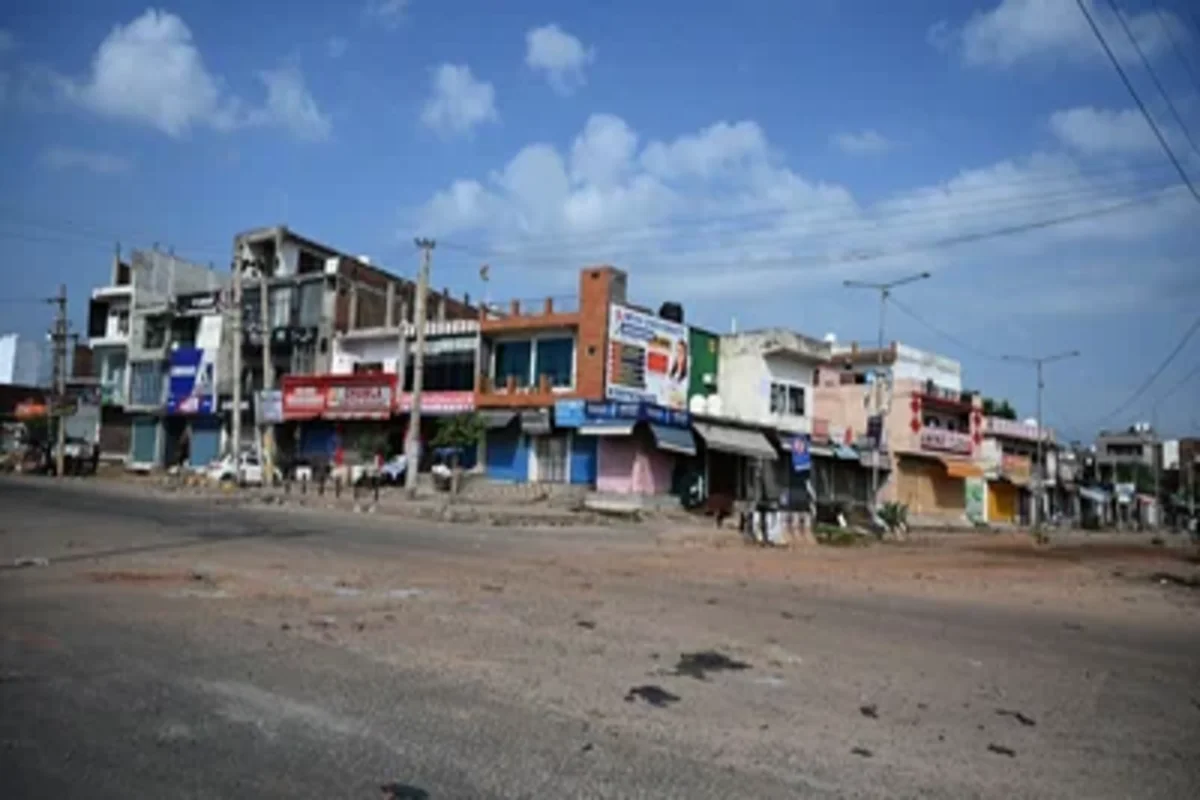Haryana: A paddy stubble management policy has been published by the Haryana Cabinet with the goal of totally banning crop residue burning practises by 2027 and using paddy straw for sustainable energy. The “Haryana Ex-Situ Management of Paddy Straw Policy 2023” was unveiled during a cabinet meeting chaired by Chief Minister Manohar Lal Khattar. Its goals are to stop burning agricultural residue by 2027 and use paddy straw for sustainable energy.
Promoting Ethical Farming Practices
In addition to encouraging farmers to adopt ethical practises, the policy offers a framework for drawing in private investment for initiatives based on paddy straw and forging strong ties between agriculture and industry. Dedicated to offering farmers crop residue management (CRM) equipment at a reduced cost, the state government has already authorised 19,141 lakh devices for use by the farming community. Rewards of Rs 1,000 per acre have been filed over an area of 940 lakh acres.
Official Implementation of Paddy Straw Management Plan
The current notification, dated October 30, 2023, implementing the “Haryana Ex-situ Management of Paddy Straw 2023” plan, reflects this commitment. According to Haryana Chief Secretary Sanjeev Kaushal, 90% of the state’s paddy harvest has been finished, and the administration is actively stepping up efforts to prevent stubble burning. Kaushal underlined the government’s unwavering efforts to reduce stubble burning and proactively prevent fire incidences during a virtual meeting called by the Union Cabinet Secretary. This will help to reduce air pollution in the National Capital Region (NCR).
Agricultural Landscape of Haryana
Giving an overview of government initiatives, he revealed that 36.5 lakh acres of paddy are grown in Haryana, with 18.36 lakh acres being basmati and roughly 18.2 lakh acres being non-basmati. Sanjeev Kaushal emphasised the state government’s strict measures to further limit burning of paddy straw and its watchfulness over the Air Quality Index. He reported that the number of stubble-burning occurrences in 2023 was down 38% from the year before, with a significant 57% decrease seen in the prior two years.
Accountability Measures for Fire Incidents
Kaushal further emphasised the actions done by the state government, like sending directives to hold Station House Officers and Deputy Commissioners accountable for their failure to put out these fires. In addition, the government has filed 72 FIRs in connection with farm fires and issued 1256 challans with fines totaling over Rs. 32.55 lakh as punishment for those who start farm fires. Forty-four farm fire incidents were put out in all.
Temporal Restrictions on Fuel Types
According to Kaushal, until 30 November or until the Commission on Air Quality Management revokes GRAP Stage III, whichever comes first, the state government has placed restrictions on BS-III petrol and BS-IV diesel LMVs (4-wheelers) in the Gurugram and Faridabad districts. This restriction does not apply to emergency services vehicles, police vehicles or government vehicles used for enforcement.
Legal Actions Under Motor Vehicles Act
Under Section 194(1) of the Motor Vehicles Act, 1988, violators caught operating 4-wheeled LMVs (BS-III Petrol and BS-IV Diesel) in certain districts shall be prosecuted. In reference to the application of hologram-based colour tags to automobiles registered in NCR areas, he stated that between November 14, 2018, and January 31, 2023, about 10 lakh vehicles were color-coded in NCR districts. Reiterating the state government’s determination to do away with unsustainable practises such as burning stubble from paddy straw, he emphasised support for farmers by offering a subsidy of Rs 600 crore for the adoption of different techniques for managing stubble. This devotion is further evidenced by the usage of Pusa Bio Decomposer on more than 5 lakh acres through CSR projects.
Comprehensive Approach: In-Situ and Ex-Situ Management
In-situ and ex-situ management are both part of Haryana’s comprehensive approach, which focuses on classifying villages into red, yellow, and green zones according to active fire incidences. The state government is committed to offering farmers crop residue management (CRM) equipment at a reduced cost; as of right now, the farming community has been authorised to purchase 19141 lakh devices. Incentives of Rs 1000 per acre have been registered over an area of 940 lakh acres.
Haryana Ex-situ Management of Paddy Straw, 2023
The latest notification introducing the “Haryana Ex-situ Management of Paddy Straw, 2023” programme on October 30, 2023, reflects this commitment. By guaranteeing a consistent and sufficient supply of paddy straw to biomass-based projects, this programme seeks to lessen stubble burning and support ecologically friendly farming practises.
Keep watching our YouTube Channel ‘DNP INDIA’. Also, please subscribe and follow us on FACEBOOK, INSTAGRAM, and TWITTER.












